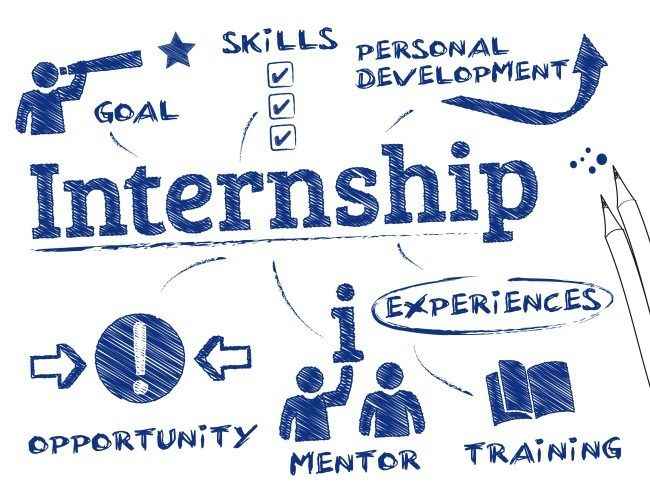Best Time To Start Internships In College: A Student Guide

The best time to start internships in college can depend on many factors, including your subject of study, career goals, and personal circumstances. Join me, as I discuss each in detail!
Table Of Contents:
Freshmen & Sophomore Years
Although internships are less common in these early years, it is still possible to obtain one. They can give you valuable knowledge and help you explore new industries and careers. Rather than focusing on prestigious companies, look for opportunities that offer mentorship and skill development.
Junior Year
For many students, this is a prime time for internships. By your junior year, you will have a better grasp of your field of study, and you may have completed relevant coursework that makes you a more competitive candidate. During this period, internships can give you practical experience in your field of expertise and help you make valuable connections.
Senior Year
Some students choose to do internships during their senior year, particularly if they want to pursue further education or gain more experience before entering the workforce full-time. Since senior year internships can sometimes result in employment offers after graduation, it's vital to make a good impression and establish a strong network.

Factors To Consider
Consider your academic load, extracurricular commitments, and other obligations. It's important to find a balance between academic excellence and practical experience.
Think about whether you want to pursue internships during the school year or during the summer months, when you may have more flexibility. Start researching and applying for internships well in advance. Some companies have early application deadlines, while others may recruit on a rolling basis.
Why Apply For Internships?
Internships aren't a requirement for many jobs, but they are a great way for a student to gain an edge over other applicants. Internships:
- Provide students with a chance to put classroom knowledge into practice.
- Help them gain work experience by preparing them with skills they'll need in the future.
- Teach better communication skills with others and establish networking connections.
- Help students learn how to communicate with coworkers and managers, become comfortable working in an office environment, and reduce the anxiety they might have when they get a career opportunity.
How To Apply?
As a general rule, students should apply for an internship at least 3–4 months before the start date if the employer has announced it that far in advance. However, the earlier a student finds a career they're excited about, the better.
Start Preparing Early
It's always better to start planning as early as possible. Before deciding on internships, students should decide which sector they want to work in, the type of internship (paid, unpaid, or for course credit), the knowledge they want to acquire, and the qualifications they will need.
Students can use family members to help them find companies online. Parents can also use their own personal and professional networks to find potential internship opportunities and can help their children update and polish their resumes to best showcase their skills.
What Career Fields Am I Curious About?
Before applying for internships, consider what career fields interest you the most. There is no right or wrong answer to this question, and it's perfectly fine to say you don't know yet—that's already a significant first realization! Research different career fields and compile a list of those that interest you.
These fields can be as broad as "working with children" or as specific as "statistics research on sports injuries." Visiting the exploratory career community on the Greene Center website is highly recommended.
There are some helpful resources to get you started. Career Explorer is a five-minute survey that matches your skills, interests, and personality to potential careers. Before committing to internships, it is best to be open-minded and reflect on the breadth of careers that interest you.
Brush Up on Your Job Application Fundamentals
Before starting to search for an internship, I recommend brushing up on your job application fundamentals. To apply for any job, internship, or other endeavor, you will need these materials. If you don't have them now, there's no better time than now—you'll need them eventually. To apply for most internships, you'll need the following:
Resume
Cover letter
References (and sometimes a letter of recommendation)
LinkedIn profile (some employers will ask for this in lieu of a resume)


Of course, once you apply, you'll need to tailor your resume, cover letter, and reference/letter of recommendation to the specific position. This is yet another reason to start early: preparing these materials will take some time.
In particular, letters of recommendation require a lot of time before they are published because they require a busy professor, coach, or someone else who knows you well to take the time to write a letter. They may not have enough time to write one (let alone one that will help you secure the internship) if you wait too long.
What Skills Do I Need to Be Successful in This Field?
After considering your areas of expertise, it's important to consider the different skills you will need to succeed. I suggest checking out the career communities page once more to see specific skills in your field of interest. You can also refer to the college competencies, which is a refined list of the top skills that employers look for in their candidates. When sorting through all this data, it may be helpful to create a table to organize your thoughts.
Conclusion
In a nutshell, an internship can be an excellent and fulfilling experience. You can learn a lot from the work, even if the technical aspects aren't perfect and could be improved with time. Time-management skills and self-motivation are two of the main things you can develop through an internship.
For more interesting and exciting news about your college and upcoming fests, visit Apna Adda Fest.
